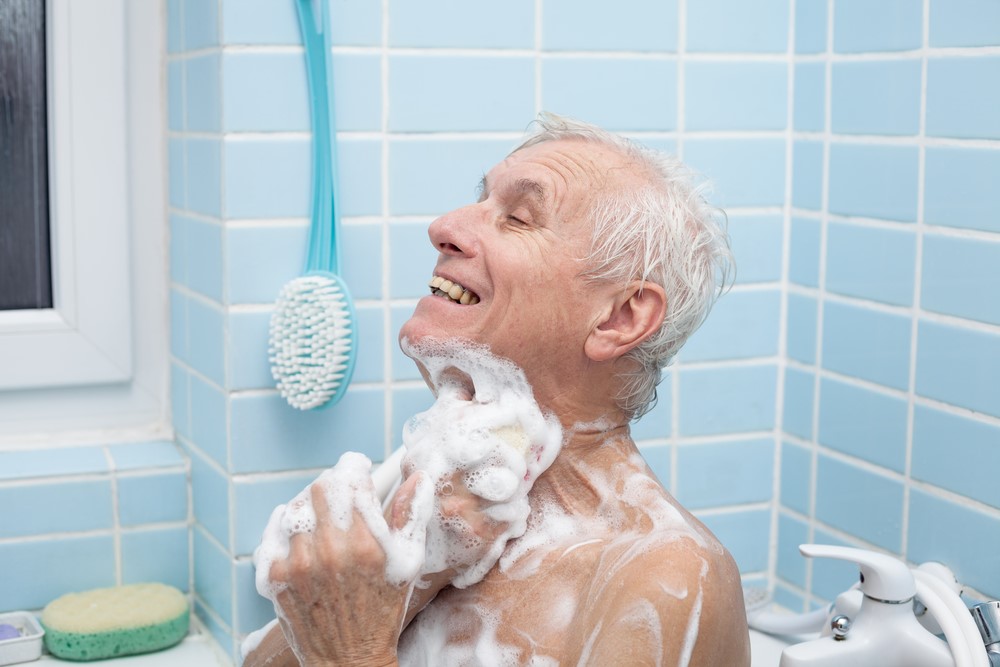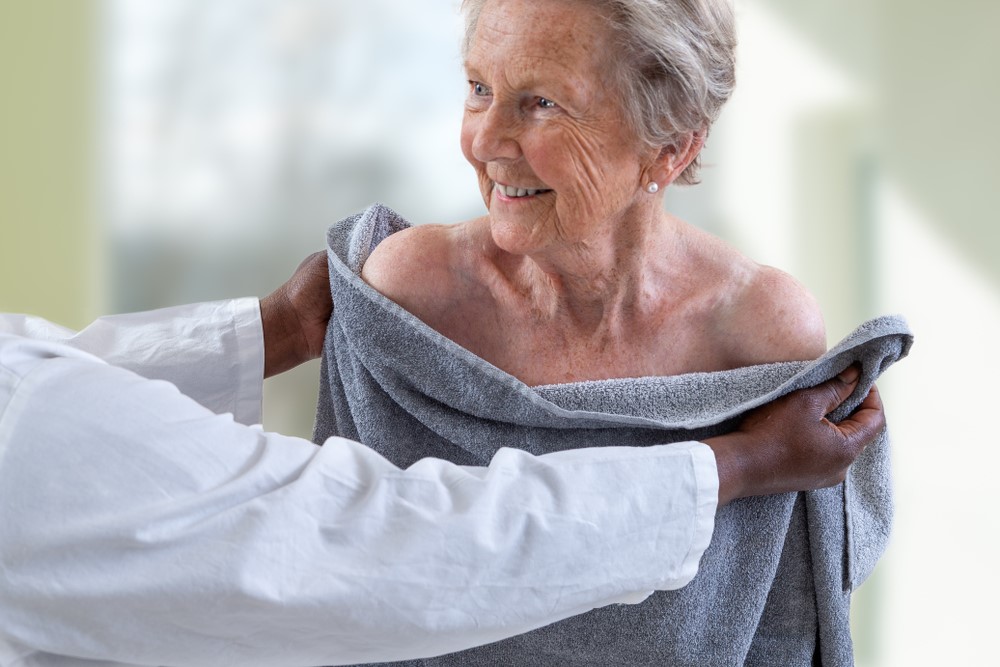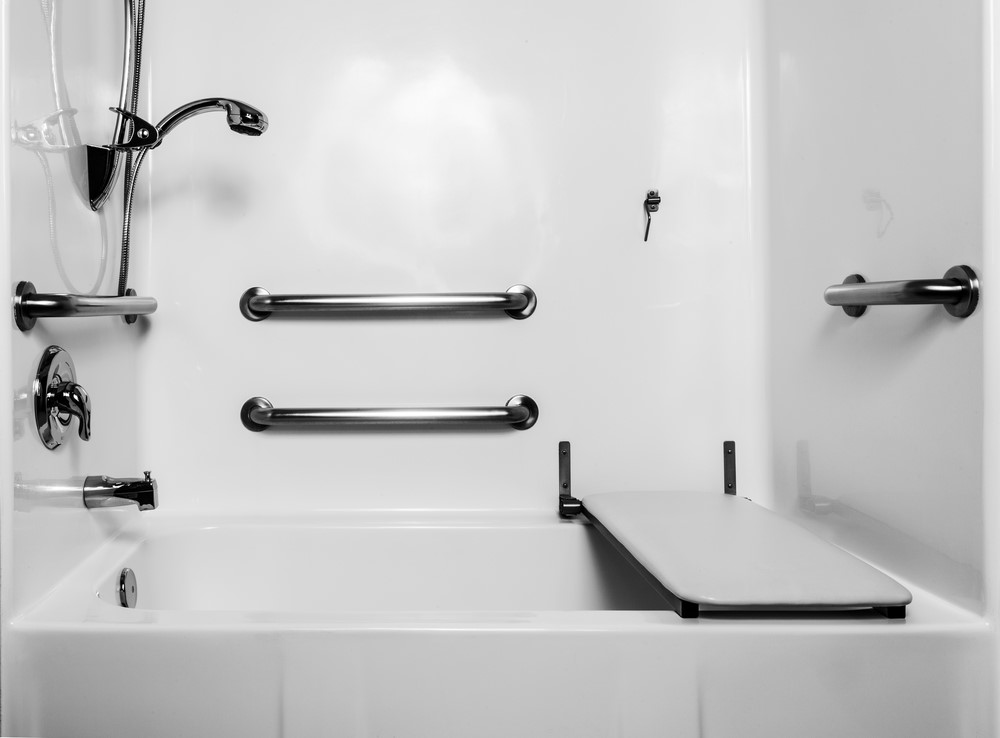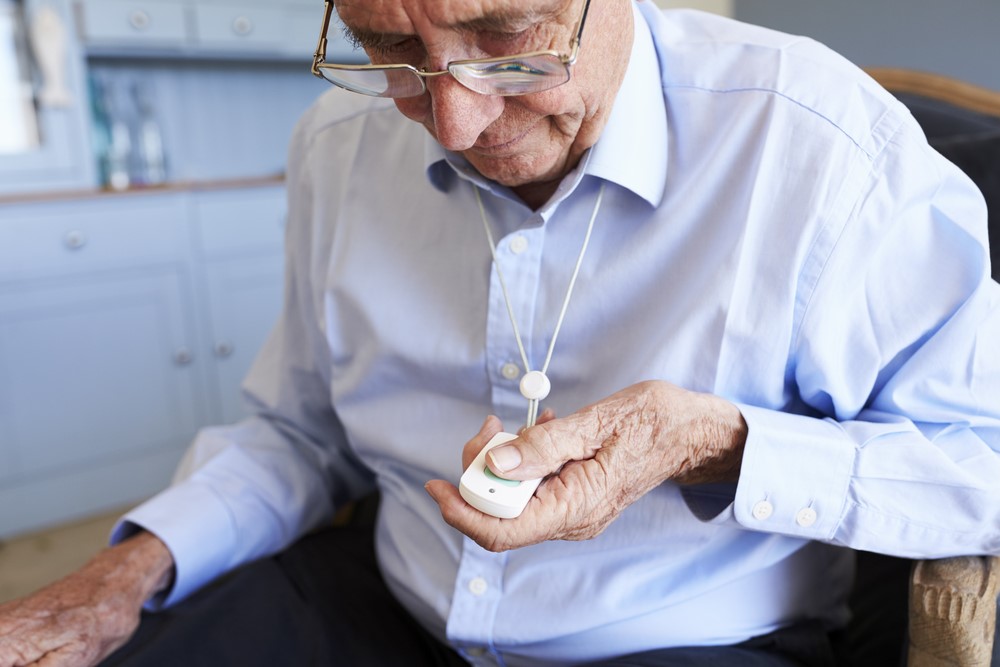
Keeping clean is critical at any age. Doing so reduces the amount of grime and germs, lowering the risk of health problems. Cleanliness helps with mental health as well.
Yet, hygiene for seniors isn’t always straightforward. Many people struggle to keep themselves clean or aren’t willing to do so. Sometimes the reasons are obvious, but often they’re not at all. So, what’s going on? Why is this such a difficult area and what can you do about it?
To answer those questions, we’re going to delve into some of the main reasons that hygiene can get difficult for seniors, plus what you can do to help.
Why Seniors Don’t Always Keep Themselves Clean
Declines in Memory and Senses
Aging has many impacts on the body.
Part of this is that senses like vision and smell decrease. This makes it harder for seniors to know when they smell bad or when their clothes need a wash.
Memory is often an issue too. Some seniors may find it difficult to keep track of when they last had a shower, especially if their days are very similar to one another.
This combination can place seniors on the back foot. They may not be intentionally neglecting their hygiene. Instead, they may be simply unaware that it’s time to have a shower.
Physical Limitations
Seniors with physical challenges may start to find bathing more difficult. Perhaps they’re struggling to stand while they have a shower or have almost fallen once or twice.
Fatigue can be an issue too. Some seniors really struggle with energy, sometimes as a side effect of medication or because of a health condition.
Not surprisingly, these challenges may make the senior more resistant to bathing. Who wants to go through all of that, especially if they don’t even think they need a shower?
Cognitive Challenges, Including Dementia
Cognitive challenges can influence hygiene as well.
For one thing, they can make once familiar tasks incredibly difficult. Some seniors will get confused and overwhelmed by the steps involved in having a shower. There’s a lot going on and sometimes even the simplest familiar tasks can be confusing and overwhelming.
Some seniors in this situation also have problems with authority. They may resist being told what to do or can even become paranoid, feeling that you are trying to manipulate them.
Dementia can also come with a fear of water, sometimes because of the temperature and sometimes because the senior doesn’t understand what is happening. This makes baths and showers incredibly difficult, especially as dementia patients often don’t respond to rationality.
Embarrassment

Sometimes, when seniors face physical, mental, or emotional difficulties with bathing, they don’t want to ask for help. This could mean that they simply bathe less often or pretend that they have when they haven’t.
This can be a difficult area, as bathing is intensely private. The idea of needing assistance can seem terrifying.
Being calm and talking things through gently with the senior can help. This could include looking at what they can do on their own and what makes life easier.
Sometimes the solution may be simple, like having a stool in the shower and a long shower head, so they don’t need to stand while they get themselves clean.
Depression
Depression can make everything much more challenging, including bathing. Some people may go weeks or even a month without having a shower, as the process feels far too overwhelming (and may also feel pointless).
You may be able to encourage a depressed loved one to have a shower, but forcing them rarely works. And please, don’t take the guilt trip approach for a loved one with depression. Doing so doesn’t help their mental health at all (and probably won’t get them into the shower anyway).
If it seems like the senior could be depressed, then it’s crucial to talk to a professional. They’ll be able to diagnose the senior and get started with a treatment plan.
Boredom
Even if seniors aren’t depressed, boredom can make bathing less appealing.
Some may wonder what’s the point of getting clean and dressing well if today is just the same as yesterday – and all they’re doing is sitting around the house.
A Bad Experience
Finally, some seniors have already had falls or near falls in the bathroom. Even one such experience may leave a mark, perhaps making the senior reluctant to bathe.
How to Improve Hygiene for Seniors
To help your loved one, it’s first essential to understand what their struggles are. Which area (or areas) from above are most relevant to them? Working this out is critical, as your solutions need to target the problem to be effective.
Make the Bathroom Easier to Use

Improving the bathroom is a powerful first step.
This makes it easier for the senior to have control over their own hygiene and can reduce stress.
Handrails and grab bars are particularly relevant. These help seniors to raise and lower themselves, particularly after using the toilet. These need to be installed well, so they stay in place, even when the senior’s full weight is on them.
Look for screw-in products, like these, whenever possible. They’re much safer than suction-based ones, which sometimes lose their grip at the worst possible time.
Raised toilet seats and shower stools are relevant too. Raising the toilet seat makes it easier for the senior to get up and down, while shower stools give seniors the chance to sit when they need to (or even to sit throughout their shower).
Accessories for the bath and the shower can make life easier too – like long-handled brushes and convenient shelves.
Basically, anything that makes life less stressful may help seniors to bathe more often.
Talk About the Importance of Hygiene for Seniors
Resistance to bathing sometimes stems from a “what’s the point?” mentality. This is particularly true for seniors who don’t get out much.
It may help to remind them, gently, that good hygiene isn’t just for other people. It also helps with their physical health, reducing the risk of skin problems, infections, and more.
Establish a Routine
Routines have many benefits.
They can easily make experiences less scary, helping people to know what to expect and when. A routine can also influence how people experience an event, taking it from being something big and scary, to something mundane.
Daily showers are an easy way to do this, but you could also have specific days for bathing – like Monday and Friday.
Having a couple of days like this helps to vary the week. You could even use those days as a chance to take the senior out. Doing so may further encourage them to bathe.
Make the Experience Good
Baths and showers can be pleasant experiences.
Even if the senior doesn’t want to get clean, you can still work on making the experience enjoyable. Playing nice music, making sure the room is warm, and laying out clothes are all simple techniques that can help.
Buying nice shower and bath products is powerful too. Seriously, some nice lotion or shampoo makes everything much more enjoyable.
Also make sure that whatever room they’re going into next is warm, as seniors are often vulnerable to the cold.
Patience and Gentleness
The way you interact is an important aspect of hygiene for seniors as well.
Being patient, kind, and gentle helps – a lot.
Some caregivers focus on trying to lighten the situation. Music can help with this or perhaps even jokes. It doesn’t all need to be incredibly serious.
Distraction is relevant too. For example, you might talk to the senior throughout the process, perhaps about something that isn’t related at all. Doing this keeps the mood light, while taking their focus off any discomfort they’re experiencing.
Remember too that the senior is struggling. Most of the time, trying to pressure or guilt trip them into keeping clean isn’t going to work. It’s not fair either.
You may need to be patient. Some seniors lash out when they’re struggling, without understanding why they’re doing so.
Mindful self-compassion techniques may help you to stay present in the moment, without reacting to what the senior is saying.
That said, please don’t beat yourself up if you lose your temper sometimes. Many of us suffer from caregiver guilt, partly because we have unrealistic expectations of ourselves.
Here’s the thing. You will get it ‘wrong’ sometimes. Perhaps even often. Caring for another person comes with a whole raft of emotions, many of which aren’t pleasant. You’re going to get overwhelmed at times. That’s okay. It’s just part of being human.
Talk to Their Doctor
If there is a physical or cognitive reason that seniors resist bathing, their doctor may be able to help. There might even be a simple solution, like changing medication to one that doesn’t have fatigue as a side effect.
The doctor may also have recommendations that you haven’t thought of, ones that can make things easier.
Set Up a Medical Alert System

There are plenty of ways to lower the risk of bathroom falls. But, the potential is always there.
A medical alert system means that if the senior falls, they can be found quickly and supported. This is essential if the senior lives on their own. Otherwise, if they fall in the shower and can’t get up, they might be stuck there all night.
Try Sponge Baths
Sponge baths still help a senior to get clean, but require much less of them than a regular bath. They take a little getting used to, but aren’t as difficult as they first seem.
You can even find products to assist you, like no rinse shampoo and body wash.
However, a sponge bath won’t ever get a senior as clean as a real bath or shower. After all, a shower gives them the chance to wash off soap and offers a mental health boost too. Sponge baths don’t offer those features at all.
Consider Hiring Someone
Seniors who can’t bathe safely on their own may need assistance, often from a spouse or a family member.
However, sometimes it’s better to look for external support. In particular:
- Bathing assistance is incredibly personal. Some people prefer being supported by a professional, rather than having a family member help them with something so delicate. After all, a professional has done this many times before and isn’t likely to be embarrassed or emotional.
- Having family help can be embarrassing. If you raised your children and supported them throughout their lives, having them help you get clean could feel incredibly demeaning.
- Adult children and spouses will have their own challenges and reactions to bathing a senior. These can make the entire process more difficult, especially if people are bouncing off each other emotionally.
How Often Should a Senior Bathe?
Here’s another important aspect of hygiene for seniors – how often should they bathe?
Many of us grew up with the idea that you bathe once per day. This is a useful practice, but it isn’t actually essential.
If seniors are struggling to bathe regularly, doing so once or twice per week may be better. This is enough to keep them smelling okay and to avoid serious infections and skin conditions.
However, the answer here depends on the individual.
If the senior is regularly dirty or smelly, perhaps due to incontinence, they may need to bathe daily. Some caregivers also find that daily bathing is more effective, as this creates a sense of routine and stops bathing from beginning a big deal.
Final Thoughts
In some ways, hygiene for seniors is a complex topic. There are many reasons why seniors mightn’t keep themselves clean – and just as many ways to help.
The simplest approach, however, is to experiment. Be kind, gentle, and try out different things. See what works for your loved one. What helps them to feel better? What promotes good experiences?
You won’t always get it right. That’s okay though.
Whatever you do is more than enough.
Feeling Overwhelmed?
Check out our Caregiving Consulting service for personalized support and guidance.

Leave a Reply